Ethical hacking involves the authorized examination of systems, networks, and applications to identify vulnerabilities that malicious hackers can exploit. It is a dynamic field that requires a deep understanding of how the various components of technology interact.
What is Ethical Hacking?
Ethical hacking, also known as penetration testing or white-hat hacking, is the practice of deliberately examining computer systems, networks, applications, and other digital resources with the permission of their owners in order to identify vulnerabilities and vulnerabilities. The primary goal of ethical hacking is to assess the security status of these systems and help organizations enhance their cyber security protection.
Ethical hackers, often referred to as “white-hat hackers”, use their skills and knowledge to replicate the strategies, techniques, and processes that malicious hackers (black-hat hackers) might employ. However, ethical hackers do so with the legitimate and authorized intention of exposing vulnerabilities before malicious actors can exploit them. The information gathered during ethical hacking exercises is used to strengthen security infrastructure, fix vulnerabilities, and protect sensitive data from unauthorized access, data breaches, and cyber attacks.
Ethical hacking can involve various approaches and methodologies, including:
- Network Penetration Testing: Assessing the security of network infrastructure, identifying open ports, misconfigurations, and potential points of entry.
- Web Application Security Testing: Evaluating the security of web applications to find vulnerabilities like SQL injection, cross-site scripting (XSS), and insecure authentication mechanisms.
- Wireless Network Assessment: Examining the security of wireless networks to identify potential weaknesses that could be exploited by attackers.
- Social Engineering: Testing an organization’s susceptibility to manipulation by attempting to trick employees into revealing sensitive information or performing actions that compromise security.
- Physical Security Assessment: Evaluating the physical security measures in place, such as access controls, surveillance systems, and employee training.
- Code Review: Analyzing software code for vulnerabilities that could be exploited by attackers.
Ethical hackers usually follow a structured and systematic approach to their evaluation. They then document their findings in comprehensive reports detailing the vulnerabilities discovered, potential risks, and recommendations for remediation. These reports enable organizations to take proactive steps to address security vulnerabilities and enhance their overall cyber security posture.
It is important to note that ethical hacking is legal and ethical when it is conducted with proper authorization from the system owner. On the other hand, unauthorized hacking is illegal and can lead to criminal charges. Many ethical hackers have certifications like Certified Ethical Hacker (CEH) to validate their skills and knowledge in this field.
The Relationship Between Ethical Hacking and Coding
Coding is the foundation of software and applications. While coding knowledge can be beneficial for ethical hackers, it’s not the sole determinant of success in the field.
Is Coding a Prerequisite for Ethical Hacking?
Contrary to popular belief, coding is not an absolute prerequisite for ethical hacking. Many fundamental skills can be acquired without extensive coding knowledge.
Alternate Pathways to Ethical Hacking Mastery
- Mastering Networking Fundamentals: Understanding network protocols and architectures is essential for comprehending vulnerabilities.
- Exploring Cybersecurity Tools: Proficiency in tools like Wireshark and Metasploit can aid in identifying weaknesses.
- Gaining Proficiency in Operating Systems: Learning how different OSes function is crucial for exploitation.
- Hands-on Experience with Virtual Machines: Virtual environments allow safe experimentation.
- Studying Cryptography Basics: A grasp of cryptography enhances understanding of secure communication.
Ethical Hacking Certifications
Obtaining certifications like Certified Ethical Hacker (CEH) or CompTIA Security+ can validate your skills and enhance employability.
Building a Strong Analytical Mindset
Ethical hacking demands analytical thinking, problem-solving, and attention to detail.
The Role of Coding in Advanced Ethical Hacking
Advanced hacking techniques like writing exploits or developing custom tools require coding skills.
Challenges Faced by Non-Coders in Ethical Hacking
Non-coders may face challenges in advanced tasks but can excel in other areas due to their diverse skill set.
Conclusion
In conclusion, one can embark on a journey of ethical hacking without being a coding expert. A combination of networking, cybersecurity tools, operating system knowledge, and other skills can create a well-rounded ethical hacker.
FAQs (Frequently Asked Questions)
- Q: Can I become an ethical hacker if I’m not proficient in coding? A: Yes, you can. While coding helps, many essential skills in ethical hacking can be acquired without extensive coding knowledge.
- Q: Is certification important for ethical hacking careers? A: Certifications like CEH or CompTIA Security+ can enhance your credibility and job prospects.
- Q: What are some recommended cybersecurity tools for beginners? A: Wireshark, Nmap, and Burp Suite are excellent tools to start with.
- Q: How can I practice ethical hacking in a controlled environment? A: You can set up virtual labs using tools like VirtualBox or VMware to experiment safely.
- Q: What mindset is needed for a successful ethical hacking career? A: A curious, analytical, and problem-solving mindset is essential for success in ethical hacking.

